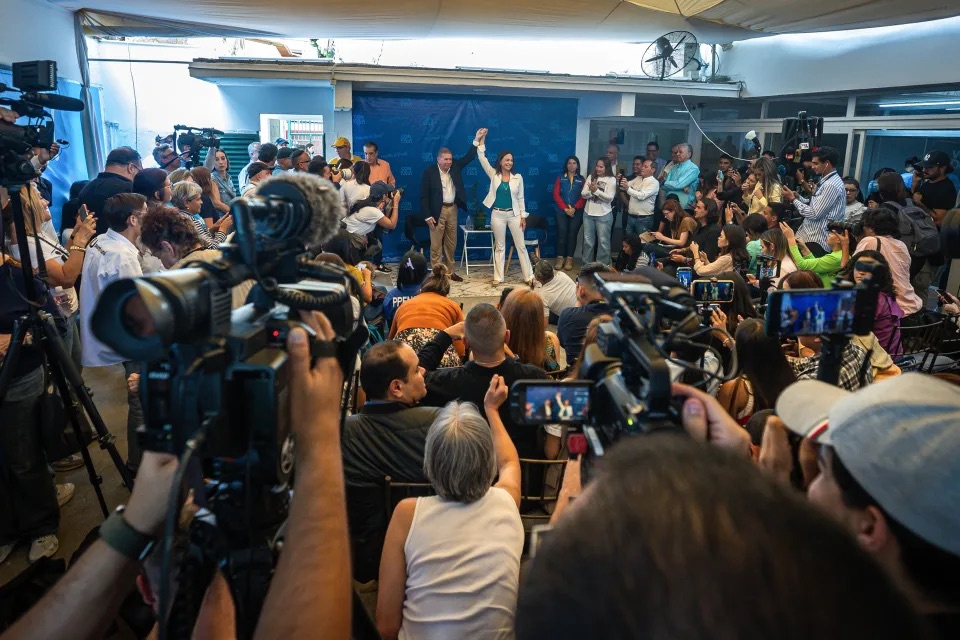Maduro’s campaign presents polls to counter the pro-opposition surveys

14ymedio, Madrid, 25 July 2024 — The Cuban state press has rushed to shore up the disinformation campaign launched in Venezuela by the Chavista hosts to try to make people believe that Nicolás Maduro will win next Sunday’s elections. Faced with independent polls, which show the opposition candidate, Edmundo González Urrutia, a clear winner, the Venezuelan Government has been airing its own polls for days that grant victory by a wide margin to the current president.
According to the government Center for Measurement and Interpretation of Statistical Data, reproduced by Cubadebate on July 20, Maduro has a “very high probability of winning with 53% of the votes.” The electoral results “are not polarized,” and participation “does not exceed 65%.”
The numbers are opposite to those shown by the most recent calculation of the Center for Political and Government Studies of the Catholic University Andrés Bello and the pollster Delphos, who estimated that González Urrutia would obtain approximately 4.9 million votes and Nicolás Maduro 2.9 million votes. In “any of the scenarios,” of high or moderate participation, these independent institutions said, there is “a difference ranging from 20% to 34% in favor of the opposition.”
Even more forceful was a survey published in May by Datincorp, considered the most reliable survey company in the country, which gave González Urrutia 62% support, compared to only 20% for Maduro. This pollster also highlighted an overwhelming participation of 75%.
The Chavista campaign does not only present its own polls but also tries to discredit the independent polls
The Chavista campaign does not present its own polls but also tries to discredit the independent polls. Thus, they talk about “fake surveys,” as in an article in the Mexican newspaper La Jornada, also reproduced by Cubadebate this Tuesday.
“It’s a mathematical market for experts using diverse methods, almost always attached to unsustainable syllogisms for illusionist operations. The problem is not the surveys (if they are scientific), but


